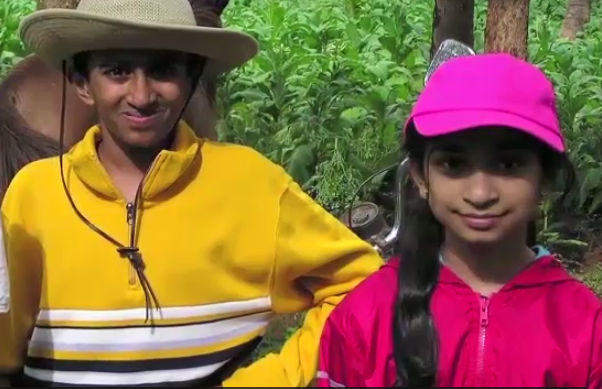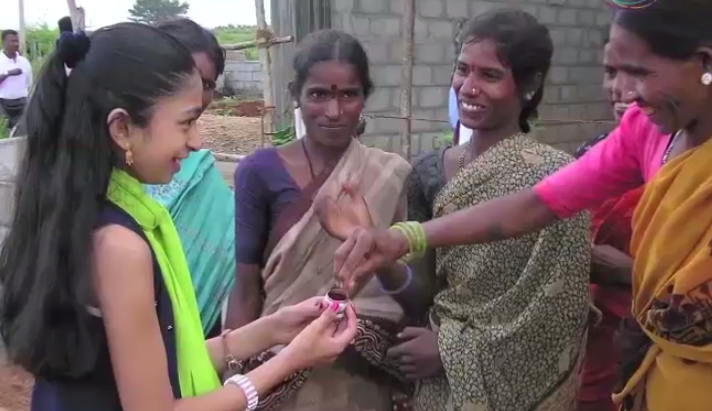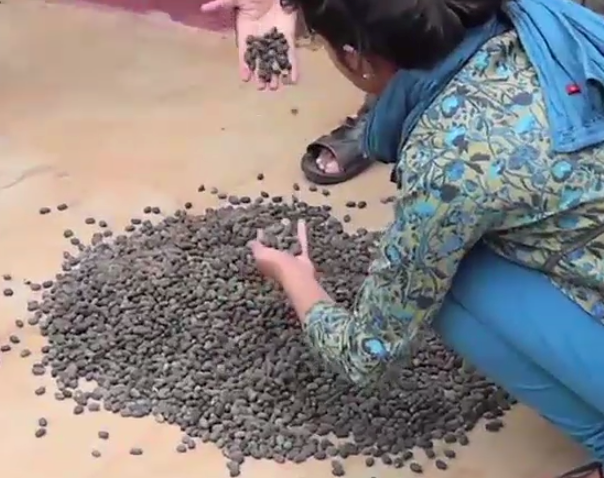 |
| Adarsha and Apoorva (Unity Lab (Working Group)) |
In 2007, at the age of 14, Adarsha and his 12 year-old sister Apoorva decided they wanted to do something to combat the depletion of natural resources and the damage being done to the atmosphere by carbon dioxide emissions. So they started up the nonprofit Project Jatropha. "It's the only planet we have," explains Adarsha, "We have to do something, even if it's something small like project Jatropha." Jatropha is a plant that grows in tropical climates. It caught the attention of the teen siblings when they were looking into alternatives to fossil fuel. They discovered that, when dried and processed, oil can be extracted from the Jatropha fruit and used as an eco-friendly bio-fuel.
 |
| Adarsha and Apoorva (Unity Lab (Working Group)) |
Since Jatropha plants couldn't be grown in their U.S. hometown, the two looked to India, a place where they already had family roots and had spent a great deal of time. Their goal was to introduce a new crop to the farmers of the Mysore district of southern India with hopes of energizing the local economy by promoting the development of this sustainable source of biofuel. "The area we're working with, the people are subsistence farmers," Apoorva explains. One of their most important crops, tobacco, requires curing, something that's done with wood fires. This process has ultimately lead to an alarming amount of deforestation in the area.
 |
| Apoorva with villagers (Unity Lab (Working Group)) |
Adarsha and Apoorva hope that the viability of Jatropha won't just spur a growth industry in this sustainable fuel, it'll give these subsistence farmers a cash crop and an abundant future while simultaneously putting the brakes on runaway deforestation. Despite what seemed like a win-win proposition, the skepticism of local farmers remained and the brother-sister team realized the job at hand would require extra effort to gain the villagers' trust, so they went and lived with them for several weeks. "We met their children and we worked on their farms," says Apoorva, "I started to really bond with the women." These women also make many of the financial decisions in their village and were taken by the long-term opportunity that Adarsha and Apoorva were advocating. Soon, small fields of Jatropha were planted.
 |
| Jatropha seeds (Unity Lab (Working Group)) |
The brother-sister team travelled back to India twice a year to check on the progress of the Jatropha plants that had already been cultivated and to educate local school children about climate change and sustainable solutions. Since then, 13,000 seedlings have been planted and the first lush fields of Jatropha have begun to mature and bear fruit. The first viable crop of seeds have been harvested and the Jatropha crop shows promise of fulfilling Adarsha's and Apoorva's greatest hopes. Meanwhile, the brother-sister environmentalists stay busy back home in the U.S. by working with environmental clubs at their school and youth garden projects in their community.
 |
| ( ()) |
In 2009, they won the prestigious President's Environmental Youth Award, honoring young people making a positive difference in their communities and their world. "Every small action really does make a difference," says Adarsha, "Logically, one person can't make a difference. (but) if you get enough people doing it, it doesn't matter. We can do the impossible."
Page created on 8/6/2014 10:43:15 AM
Last edited 1/7/2020 9:14:04 PM
